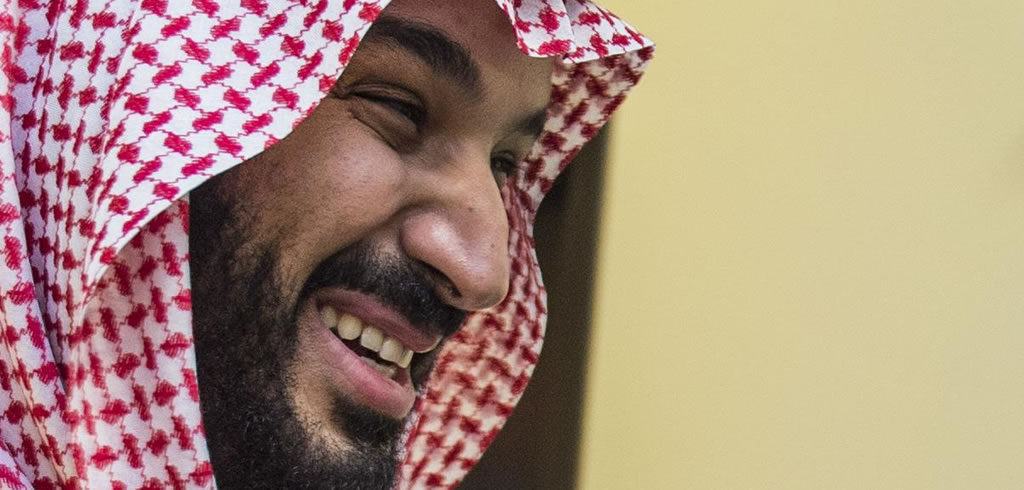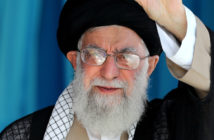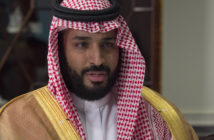Saudi Arabia’s Deputy Crown Prince Mohammed bin Salman, who looks increasingly likely to leap-frog a number of older brothers and cousins to succeed his ailing father King Salman at the head of the House of Saud, has been variously described as “reckless” and a “political gambler”.
The powerful young prince – who has risen to become the kingdom’s minister of defence, second deputy prime minister and chair of the Council of Economic and Development Affairs at just 30 years of age – has been portrayed as immature, naïve and arrogant, and has even been referred to by some commentators as “the most dangerous man in the world”.
While few would argue Prince Mohammed’s divisiveness, the young prince may well be the only member of the Saudi royal family possessed of the pluck required to reform the ultraconservative kingdom both socially and economically, the kind of radical reformer the reactionary monarchy needs at a time when its fortunes are in rapid decline. The global crash in oil prices has left the country facing a massive budget deficit and rising levels of unemployment, problems Prince Mohammed wants to resolve by implementing a radical programme of privatisation of state assets and wider economic reform.
The ambitious young prince’s “Vision 2030” plan could well be the last, best chance the country has of building lasting financial viability. There is a great deal at stake, not just for Saudi Arabia and the wider Middle East, but also for Britain and the United States. Both countries have a significant interest in a successful Saudi transition, not least due to their close economic ties with the kingdom and the catastrophic security ramifications that would follow a collapse in state authority in Riyadh. The Islamic State and al-Qaeda are already working to overturn the Saudi monarchy. Broad-based change will be vital to heading them off, and that change will require reworking the way the Saudi state interacts with its citizens.
Despite its alleged funding of extremist groups, lamentable human rights record, gender inequality and widely-criticised intervention in the war in Yemen, Saudi Arabia is one of the last remaining lynchpins of fraying stability in the region. Since the first Arab Spring uprisings kicked off in Tunisia and Egypt, leaders in the rest of the Middle East and the West were forced to take a hard look at what happens when entrenched regimes refuse to get wise to the times. After initially opting for lavish public spending to keep a restive population happy, the oil price fall has led Saudi leadership to realise they need a more cost-effective, sustainable solution.
David Cameron (in what were likely happier days for him) defended the UK’s links with Saudi Arabia back in January, after his government came under fire for allowing the sale of arms to the kingdom. Hardly surprising, considering the UK exported goods and services worth around £7 billion to the country in 2014 alone. Boris Johnson, who stands poised to succeed Cameron as Prime Minister in a few months’ time, made a point of attracting investment from the Gulf states as Major of London and placed Greater London Authority (GLA) funds in Saudi and other Middle Eastern banks. He is likely to pursue these ties from Downing Street, especially with the post-Brexit imperative of pursuing trade relationships beyond Europe. Earlier this month, Prince Mohammed toured Washington and visited business leaders in New York and California, meeting with policymakers and promoting both Saudi Arabia’s economic potential and his Vision 2030. Several Democratic and Republican lawmakers praised his programme of reforms, while other officials darkly warned there would be chaos in the kingdom if his reform plans do not succeed.
Even so, observers on both sides of the Atlantic insist that a viable social peace in Saudi Arabia will require deeper societal changes than the prince has thus far put forward. Mohammed bin Salman’s reforms will, whether he likes it or not, require a wholesale rewrite of the social contract between the Saudi government and its population. Privatisation, subsidy cuts and investment creation will mean scaling back the country’s generous welfare programmes. State handouts have bought the obedience of the Saudi people and stifled demands for representative government, but as those subsidies are taken away, the government will need to give something back in the form of more freedom of expression and civic engagement.
From a Western perspective, that bar may seem extremely low: something as simple as legalising cinemas would qualify as a revolution in Saudi public life. The Saudi royals, however, have to answer to the Wahhabi clergy that has long provided the ideological underpinnings to their rule. Bin Salman, who seems to know at least a partial opening will be integral to the success of his plans, reportedly has his sights set on pushing aside that old-guard Wahhabi establishment. If those reports bear fruit, it would clear a major roadblock to both women’s rights and social liberalisation. In any event, the prince likely will not have a choice: if his reforms proceed as planned, bringing women into the economy and giving young Saudis room to engage in entrepreneurial pursuits will make the thoroughly undemocratic Saudi ruling model unsustainable.
Britain and America, along with western investors and business interests, can do their bit to push for the change needed to transform Saudi Arabia. For all its faults, there is clearly room to create a stronger, more progressive partner in Riyadh. That will require constructive outside pressure to gradually move the Saudi state away from religious conservatism and gender inequality towards a more inclusive way of thinking. As it builds a post-oil economy, providing the outside capital and investment Mohammed bin Salman is soliciting will encourage incremental steps forward while preventing the structures of the state from buckling under societal pressure. That road to reform may not be the quickest or most satisfying way to liberalise one of the world’s most conservative states, but it is the most realistic.




